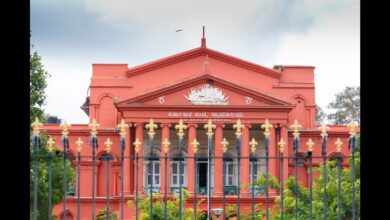On February 15, the Supreme Court will rule on electoral bonds
The Supreme Court will rule on the legality of the electoral bonds program on Thursday, ahead of the 2024 Lok Sabha elections.

The decision will be made at 10:30 am by a five-judge Constitution Bench chaired by Chief Justice of India DY Chandrachud. The bench had postponed making a decision on petitions contesting the legality of the electoral bonds program on November 2 of last year.
An Electoral Bond, which was introduced by the Finance Act of 2017, is a bearer instrument similar to a promissory note that may be acquired by an Indian person or an Indian corporation, the identity of which will be kept a secret from all parties other than SBI, from whom it must be obtained. Once bought, it may be given to a political party, which can use its bank account to cash it in.
In order to enable the program, which was announced on January 2, 2018, it was established via the Finance Act, 2017, which amended a number of legislation, including the RBI Act, the Representation of People Act, the Income Tax Act, and the Companies Act.
The Association for Democratic Reforms (ADR) accused the foreign and illegal financing of political parties, as well as the lack of transparency in their accounting, of causing corruption and subversion of democracy in a 2017 Public Interest Litigation (PIL). In addition to ADR, the electoral bonds program has also been contested by CPI(M) and Common Cause.
The petitioners had previously petitioned the Supreme Court to submit the case to a Constitution Bench, arguing that the petitions contesting the legitimacy of the election Bonds Scheme encompassed multiple constitutional concerns that had a significant impact on the integrity of the election process.
The Center insisted that there could be no black money or unreported funds obtained via the electoral bonds program, which it described as a “completely transparent” method of financing politics.
On October 16 of last year, the Supreme Court said that the Electoral Bonds Scheme included a significant constitutional question and sent petitions contesting it to a five-judge Constitution Bench.
A three-judge bench headed by CJI DY Chandrachud had said, “Given the significance of the issue raised, and considering Article 145(3) of the Constitution, the matter be placed before a Bench of at least five judges.”
The Supreme Court declined to stop the election bond sales on March 26, 2021, in advance of the West Bengal, Assam, Kerala, Tamil Nadu, and Puducherry assembly elections.







